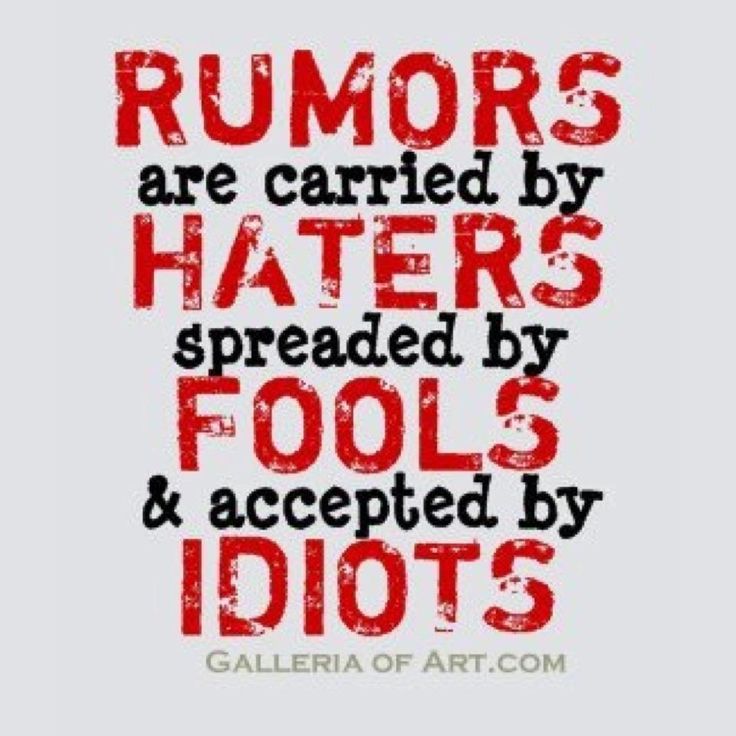Let’s face it, we’ve all been there. You’re scrolling through social media or chatting with friends, and suddenly a juicy quote pops up that sounds scandalous enough to be real—but is it? Fake gossip quotes are everywhere, and they’re not just harmless fun. They can ruin reputations, spread misinformation, and even affect our daily lives in ways we don’t realize.
In a world where information travels faster than ever, distinguishing fact from fiction has become more important than ever. Whether it’s a celebrity scandal or a political rumor, fake gossip quotes have the power to shape public opinion. But how do we separate the truth from the lies? And why do these fake quotes exist in the first place?
From clickbait headlines to fabricated interviews, fake gossip quotes are a growing concern. In this article, we’ll dive deep into the world of fake gossip, explore its impact, and give you the tools you need to spot these misleading statements. So buckle up, because we’re about to uncover the truth behind the lies.
Read also:What Does Francesca Stugot Meaning Unveil A Deep Dive Into Its Origins And Significance
What Are Fake Gossip Quotes?
Let’s start with the basics. Fake gossip quotes are fabricated statements attributed to someone, often celebrities, politicians, or influencers, to create drama, attract attention, or simply make money. These quotes are usually designed to sound believable, but when you dig deeper, you’ll find they have no basis in reality.
For example, imagine you see a tweet claiming a famous actor said, “I hate my fans,” or a headline screaming, “Celebrity X admits to illegal activities.” Sounds juicy, right? But chances are, those words were never spoken by the person in question. Instead, they were created to generate clicks, shares, and controversy.
Why Do People Create Fake Gossip Quotes?
There are several reasons why fake gossip quotes exist. Here are some of the most common motives:
- Clickbait: Websites and social media accounts often use fake quotes to lure people into clicking on their content. The more sensational the quote, the more likely it is to go viral.
- Financial Gain: Some creators and platforms profit from ad revenue generated by high traffic. The more clicks and shares a fake quote gets, the more money they make.
- Reputation Damage: In some cases, fake quotes are created to harm someone’s reputation or credibility. This can be done out of jealousy, competition, or even political motives.
- Entertainment: Believe it or not, some people create fake gossip quotes just for fun. They might not intend to harm anyone, but the consequences can still be serious.
The Impact of Fake Gossip Quotes
Now that we know what fake gossip quotes are and why they exist, let’s talk about their impact. These misleading statements can have serious consequences, both for individuals and society as a whole.
For celebrities and public figures, fake gossip quotes can damage their reputation, affect their careers, and even lead to legal action. Imagine being falsely accused of something you didn’t say or do. It’s not just embarrassing—it’s life-altering.
But it’s not just famous people who suffer. Ordinary people can also fall victim to fake gossip, especially in the age of social media. A false quote attributed to someone can spread quickly, leading to misunderstandings, conflicts, and even bullying.
Read also:Bryce Halls Gf Mika The Untold Story Youve Been Waiting For
How Fake Gossip Quotes Affect Society
On a broader scale, fake gossip quotes contribute to the spread of misinformation. When people believe and share these quotes without verifying their authenticity, it creates a cycle of distrust and confusion. Over time, this can erode our ability to trust reliable sources of information.
Moreover, fake gossip can fuel divisions and conflicts. For instance, a fabricated quote about a political figure can inflame tensions and deepen existing divides. In extreme cases, it can even lead to real-world consequences, such as protests or violence.
How to Spot Fake Gossip Quotes
So, how can you tell if a gossip quote is fake? Here are some red flags to watch out for:
- Unreliable Sources: If the quote comes from a website or account you’ve never heard of, be skeptical. Reputable sources usually fact-check their content before publishing.
- No Context: Fake quotes often lack context. They might be presented as standalone statements without any explanation or background information.
- Too Good (or Bad) to Be True: If a quote seems too outrageous or too perfect, it’s probably not real. Remember, extraordinary claims require extraordinary evidence.
- Grammar and Spelling Errors: Many fake quotes are poorly written or contain obvious errors. Legitimate sources usually have editors to catch these mistakes.
One of the best ways to verify a quote is to do a quick Google search. If you can’t find any credible sources confirming the quote, chances are it’s fake. Additionally, tools like reverse image searches and fact-checking websites can help you determine the authenticity of a statement.
Tools and Resources to Combat Fake Gossip
There are several tools and resources available to help you identify and combat fake gossip quotes. Here are a few you can use:
- Snopes: This fact-checking website is a great resource for verifying the authenticity of quotes and other claims.
- FactCheck.org: Another reliable source for debunking misinformation, especially in the realm of politics and public figures.
- Google Reverse Image Search: If the quote is accompanied by an image, you can use this tool to check if the image has been manipulated or used out of context.
- Twitter Threads: Sometimes, Twitter users will create threads debunking fake quotes and providing evidence to support their claims.
The Psychology Behind Fake Gossip Quotes
Why are we so drawn to fake gossip quotes? It turns out, there’s a psychological reason behind our fascination with drama and scandal. Humans are naturally curious creatures, and we love to speculate about the lives of others—especially those in the public eye.
Studies have shown that gossip serves several social functions. It helps us bond with others, establishes social norms, and even provides a form of entertainment. However, when gossip becomes fake or malicious, it can have negative effects on both the gossiper and the subject of the gossip.
Why We Believe Fake Gossip Quotes
There are several reasons why we’re more likely to believe fake gossip quotes:
- Cognitive Bias: Our brains are wired to seek out patterns and confirm our existing beliefs. If a fake quote aligns with our preconceived notions about someone, we’re more likely to accept it as true.
- Emotional Appeal: Fake quotes often play on our emotions, whether it’s outrage, amusement, or curiosity. This emotional connection makes them more memorable and shareable.
- Lack of Critical Thinking: In the fast-paced world of social media, many people don’t take the time to verify the information they consume. Instead, they rely on intuition and gut feelings.
Famous Examples of Fake Gossip Quotes
Over the years, there have been countless examples of fake gossip quotes that went viral. Here are a few notable ones:
Example 1: A few years ago, a fake quote attributed to a popular musician claimed they had insulted their fans. The quote spread rapidly on social media, leading to widespread outrage. However, when the musician addressed the issue, they revealed that the quote was entirely fabricated.
Example 2: During a high-profile political campaign, a fabricated quote was circulated claiming a candidate had made racist remarks. The quote caused a media frenzy, but further investigation revealed it was a complete fabrication.
Lessons Learned from These Examples
These examples highlight the importance of critical thinking and fact-checking. They also underscore the power of social media to amplify misinformation and the need for platforms to take responsibility for the content they host.
The Role of Social Media in Spreading Fake Gossip
Social media has played a significant role in the proliferation of fake gossip quotes. Platforms like Twitter, Facebook, and Instagram allow information to spread rapidly, often without proper verification. This creates a perfect storm for fake gossip to thrive.
However, social media companies are starting to take steps to combat misinformation. Many platforms now employ fact-checkers, flag suspicious content, and provide users with tools to report fake news. While these efforts are a step in the right direction, there’s still a long way to go.
What Can You Do?
As a user, you have the power to help stop the spread of fake gossip quotes. Here are a few things you can do:
- Verify Before Sharing: Before you share a quote, take a few minutes to verify its authenticity. This small effort can make a big difference.
- Report Fake Content: Most social media platforms allow users to report fake or misleading content. Use this feature to help keep the internet a more truthful place.
- Educate Others: Spread awareness about the dangers of fake gossip quotes and encourage your friends and family to fact-check before believing everything they read.
The Future of Fake Gossip Quotes
As technology continues to evolve, so too will the methods used to create and spread fake gossip quotes. Advances in AI, deepfakes, and other tools make it easier than ever to fabricate realistic-looking content. This poses a significant challenge for both individuals and society as a whole.
However, there is hope. With increased awareness, better fact-checking tools, and more responsible behavior from social media platforms, we can work together to combat the spread of misinformation. It won’t be easy, but it’s a fight worth having.
Staying Informed in a Post-Truth World
In a world where truth and lies often blur together, staying informed is more important than ever. By educating ourselves, questioning what we read, and supporting reliable sources of information, we can all play a part in creating a more truthful and trustworthy online environment.
Conclusion: The Truth About Fake Gossip Quotes
So there you have it, folks. Fake gossip quotes are a real problem, but they’re not unbeatable. By understanding their motives, recognizing their red flags, and taking action to combat them, we can all help create a more honest and trustworthy world.
Remember, the next time you see a juicy quote that seems too good—or bad—to be true, take a moment to verify it. Your efforts could make all the difference in stopping the spread of misinformation.
And hey, don’t forget to share this article with your friends and family. The more people who know about fake gossip quotes, the better equipped we’ll all be to spot them in the wild. Together, we can make the internet a little less chaotic and a lot more truthful. So, what are you waiting for? Go forth and fact-check!
Table of Contents
- Fake Gossip Quotes: The Truth Behind the Lies That Spread Like Wildfire
- What Are Fake Gossip Quotes?
- Why Do People Create Fake Gossip Quotes?
- The Impact of Fake Gossip Quotes
- How Fake Gossip Quotes Affect Society
- How to Spot Fake Gossip Quotes
- Tools and Resources to Combat Fake Gossip
- The Psychology Behind Fake Gossip Quotes
- Why We Believe Fake Gossip Quotes
- Famous Examples of Fake Gossip Quotes
- Lessons Learned from These Examples
- The Role of Social Media in Spreading Fake Gossip
- What Can You Do?
- The Future of Fake Gossip Quotes
- Staying Informed in a Post-Truth World
- Conclusion: The Truth About Fake Gossip Quotes


